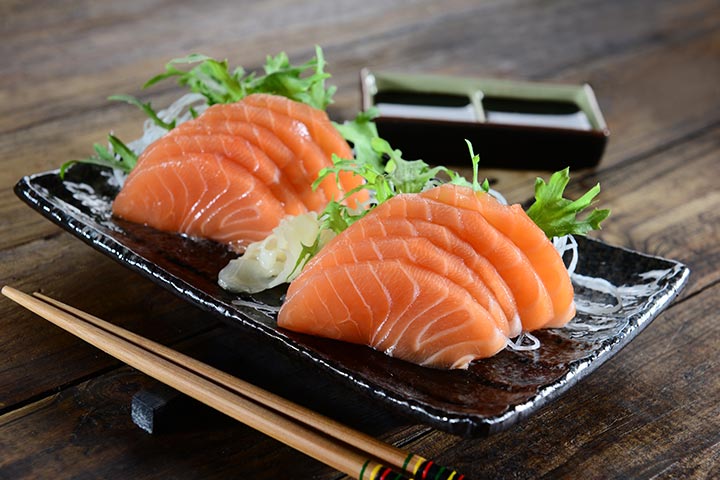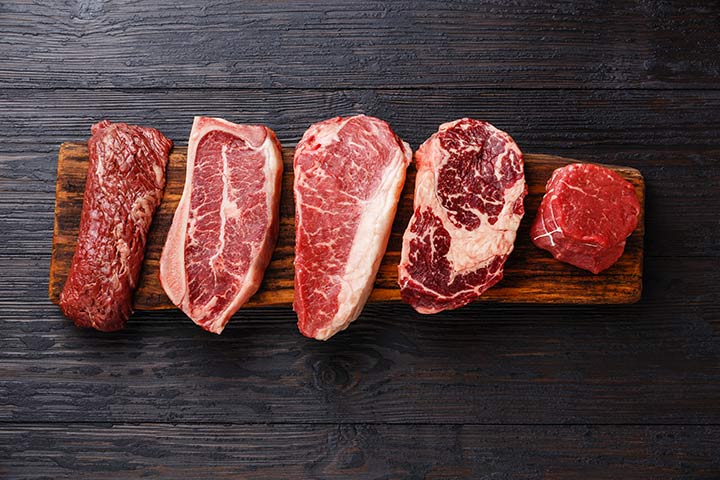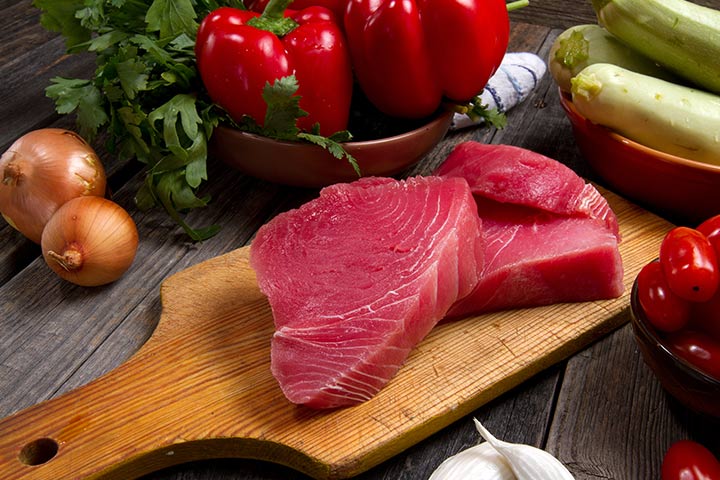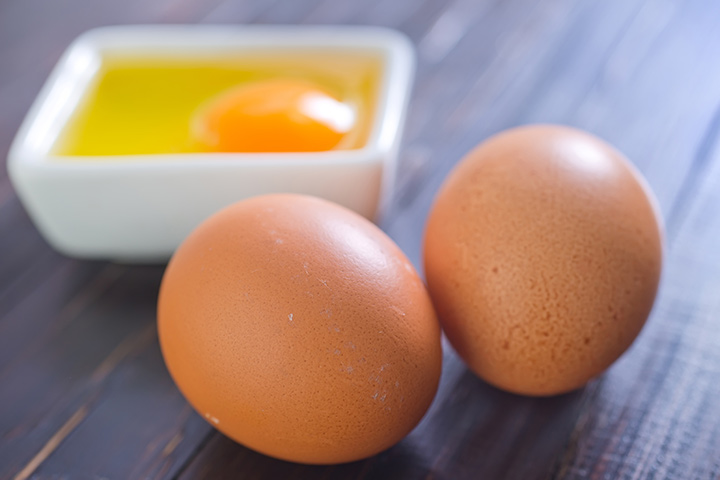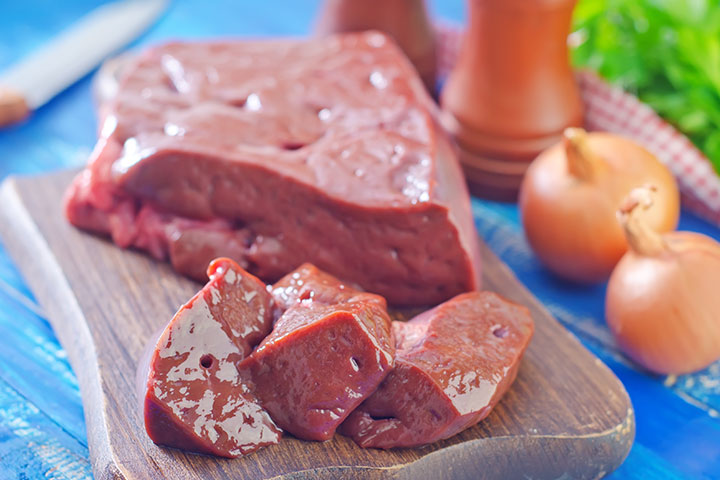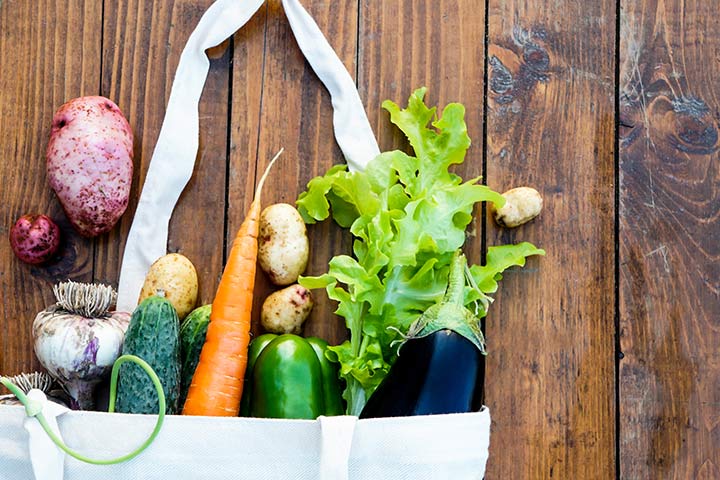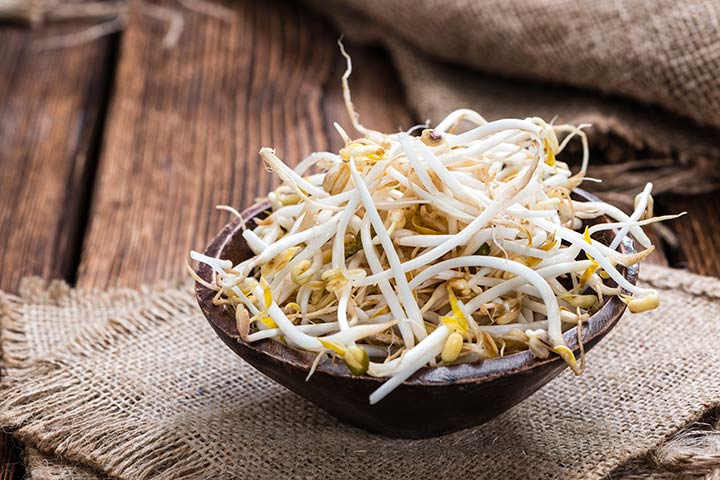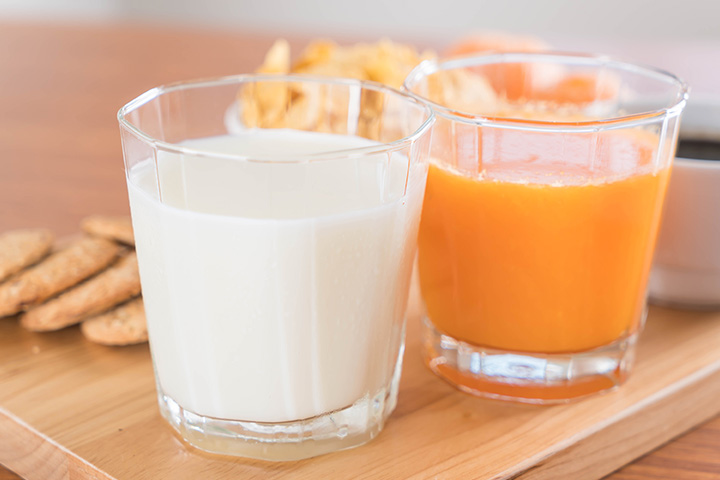
Image: Shutterstock
Pregnancy is one of the most exciting phases in a woman’s life. Your body goes through a lot of changes, both physically and emotionally. Pregnant women are always encouraged to take care of their diet as it is crucial that you have healthy and nutritious food while you are expecting. On top of that, you can also experience an intense craving for certain foods during this time. Yes, they are real!
While all this is true, there are also certain foods that should not be consumed while carrying a child. Below, we have listed those foods and beverages that need to be avoided to have a safe pregnancy. But fret not. You would still be left with many more safe foods to help satiate your cravings and make your pregnancy enjoyable.
1. Raw Or Undercooked Fish
Image: Shutterstock
Having raw or undercooked fish during pregnancy can cause various infections (1). These include everything from viral and bacterial to parasitic infections. The most common infections that affect pregnant women are Listeria, Salmonella, and Vibrio. In some cases, these infections may affect the mother with only mild symptoms such as dehydration and fatigue. It could, however, end up having severe effects on the unborn child, which could turn out to be fatal in some cases. A bacterial infection caused by Listeria has been shown to pass on to your unborn child through the placenta. So even if you show no symptoms, it could have adverse effects on your baby’s health, causing premature delivery, miscarriage, and stillbirth. So make sure you avoid raw fish and shellfish during pregnancy.
2. Raw, Undercooked, And Processed Meat
Image: Shutterstock
Consumption of raw meat comes with the same consequences as that of raw fish. Having raw or undercooked meat can cause several bacterial and parasitic infections such as E. coli, Listeria, Toxoplasma, and Salmonella. These, when passed on to the unborn child, can cause severe health effects, including stillbirth. It could also affect the neurological system of your child, causing blindness, epilepsy, and intellectual disabilities.
Some bacteria could be present on the surface of whole cut meat. So these would be safe to consume when cooked completely on the outside without cooking all the way through (2). These types of meat include anything from beef, lamb, and veal ribeye to sirloins and tenderloins. However, some bacteria may also be found within the muscle fibers. While consuming cut meat such as pork, poultry, burgers, patties, and minced meat, make sure it is not raw and has been cooked all the way through. The same goes for processed meat such as hot dogs, deli meat, and lunch meat. Make sure you heat it so that it is steaming hot before you take a bite.
3. High Mercury Seafood
Image: Shutterstock
Mercury is something that is highly toxic to the human body. It can cause damage to your kidneys and immune system. Exposure to mercury can have adverse effects on children’s nervous system as well. Since most contamination occurs in water, seafood obtained from freshwater and oceans can have varying levels of mercury in them. Consumption of high-mercury fish during pregnancy and breastfeeding can affect your child’s health adversely (3).
Seafood that may have traces of mercury include king mackerel, swordfish, shark, and tuna (4). It could also be found in marlin, orange roughy, and tilefish from the Gulf of Mexico. If you are a fish lover, you could instead go for a lot of other tasty options, particularly salmon, cod, anchovies, flounder, and freshwater trout. These fishes are found to have very low mercury content making them safe to be consumed during pregnancy.
4. Raw Eggs
Image: Shutterstock
Raw eggs may contain Salmonella bacteria which may cause vomiting, fever, stomach cramps, and diarrhea. When consumed during pregnancy, it may lead to cramps in the uterus, causing premature birth or stillbirth. There is a list of food items that use raw eggs, which need to be avoided while you are expecting. These include poached eggs, hollandaise sauce, lightly scrambled eggs, and certain homemade salad dressings that use raw eggs. It is also best to avoid homemade mayonnaise, ice creams, and cake icings. If necessary, you could go for pasteurized eggs (5). Most commercial products usually use the same, though it is always safe to read the label before purchasing.
5. Organ Meat
Image: Shutterstock
Although organ meat contains a variety of vital nutrients such as vitamin A, vitamin B12, copper, zinc, and selenium, doctors recommend against eating too much of it during pregnancy (6). Having excessive vitamin A when you are pregnant, especially during the first trimester, could lead to birth complications and even miscarriage.
6. Caffeine
Image: Shutterstock
If you are a coffee fanatic, it’s time to be conscious of your caffeine intake. During pregnancy, make sure you bring down your caffeine intake as high levels can affect the growth of the fetus and can even be fatal for the child (7). So if you are someone who loves coffee, tea, soft drinks, or cocoa, make sure you significantly reduce your caffeine intake to not more than 200 milligrams per day.
7. Unwashed Produce
Image: Shutterstock
Although this holds true for everyone, make sure you thoroughly wash your fruits and vegetables, especially when you are pregnant. Unwashed produce may contain a variety of bacteria on its surfaces, such as Toxoplasma E. coli, Salmonella, and Listeria. While people with Toxoplasmosis may experience flu-like symptoms for a month or more, some (including infants at birth) may not have any symptoms at all. However, they could lose their sight or experience intellectual disabilities later in life. Additionally, a few infants might show these symptoms at birth (8).
8. Raw Sprouts
Image: Shutterstock
While it is advised to consume a lot of vegetables and greens when you are pregnant, this one is kind of tricky. Most sprouts of mung beans, clover, radish, and alfalfa may have Salmonella bacteria, which cannot be washed off completely (9). Hence, it is best to avoid having these sprouts in their raw form while you are pregnant. However, it is safe for consumption when cooked properly.
9. Unpasteurized Fruit Juice And Dairy Products
Image: Shutterstock
Fruit juice that is not pasteurized may contain bacteria that may negatively affect the health of your unborn child. The same goes for dairy products such as raw milk and unpasteurized cheese (10). The process of pasteurizing helps effectively kill any bacteria while maintaining the nutritional quotient of these foods. So make sure you always go for pasteurized variants of fruit juices, milk, and cheese while you are pregnant.
10. Alcohol
Image: Shutterstock
Although this is a no-brainer, make sure you avoid alcohol consumption during pregnancy (11). Intake of alcohol while expecting can adversely affect your baby’s brain development. It may also lead to fetal alcohol syndrome that includes heart defects and facial deformities. Excessive intake can even cause miscarriage and stillbirth. So it is best to avoid alcohol when you are pregnant.
Though you may have to avoid some foods during pregnancy, there are a lot more food options that ensure you have a safe and healthy pregnancy. We hope our article helped you understand at least some of the foods that need to be avoided or limited when you’re expecting. If you’re concerned about any food in your diet, make sure to talk to a nutritionist or doctor to help you chalk out a pregnancy-safe diet plan.

